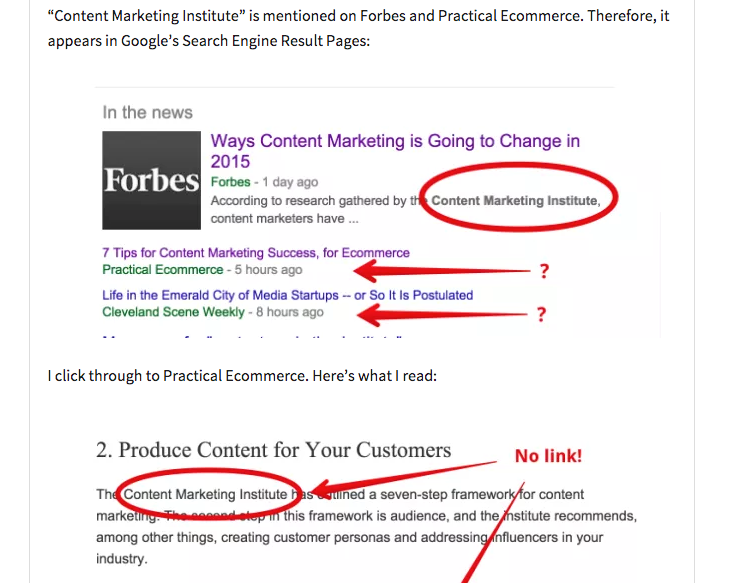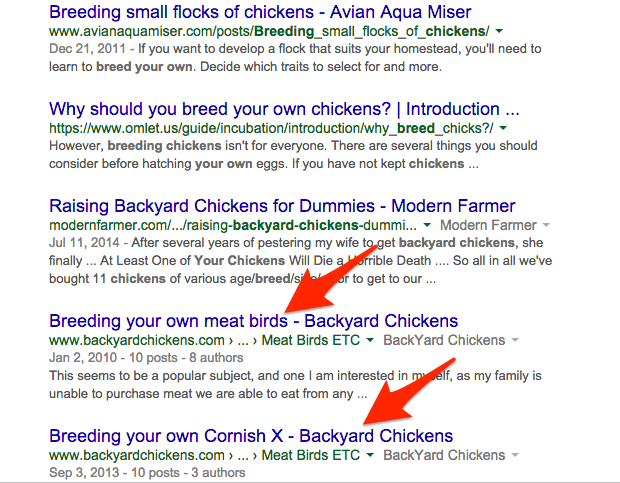 Part of branding online is to claim your presence and establish the fact you are an authority in your area. Unfortunately, far too often, online content – blog posts in particular – are created for the sake of having something to post so the results are generalized, and not great for building authority.
Part of branding online is to claim your presence and establish the fact you are an authority in your area. Unfortunately, far too often, online content – blog posts in particular – are created for the sake of having something to post so the results are generalized, and not great for building authority.
How do you know if you’re creating creating authority content on a consistent basis or not? The good news is, these type of content and websites leave big clues.
Go Deep, Take Many Words As You Need
General (non authoritative) content, tend to be about 300 to 400 words. They cover a very small piece of the topic. And that’s their goal. To get ranked for a keyword or phrase on the search engines.
Authority content on the other hand, isn’t concerned about keywords at all. They are usually painstakingly researched and immaculately written, going beyond generalities, even when they are focused on only one small aspect of a topic. Typically, these type of content run well into 700+ or over 1000 words.
Here’s a great example by Neil Patel, founder of KISSmetrics, who by the way, is a natural at authority content. When you read his posts, notice also how he provides examples, and screenshots to back it up? While screenshots don’t make authority content, most of them have it. It boils down to communicating well and communicating with clarity.
If you can substantiate your point by showing people examples, it shows you know what you’re talking about and not just pulling this stuff out of the air.
Content That Earn Their Links
Authority content has a tendency to focus on putting useful, relevant content on its own site, and curating other informative content. This piles up credibility as other people link to it as a resource without being asked.
Content That Covers a Variety of Keywords
Ok, earlier we talked about not focusing and keywords and now we throw in keywords? What’s going on? Simply this. They rank, without even trying.
Think about it. If you are an authority on fitness. You’d know the right exercises to perform, the intensity, how often, when you should take it easy, You’d also know what types of foods to eat before and after so you get the best work out, the foods to avoid. You even know a lot about equipment.
An authority site is no different. They’ll have content pertaining to all aspects of a niche and not just a micro portion. Because of that, it is possible for each subpage and subsection of an authority site to rank high on search engines.
Backyard Chickens is a great example of such a site. Not only do they have great content on raising chickens, but they also have reviews on breeds and supplies, and they don’t just talk about chickens but cover other poultry too.
When searching for “how to breed your own chickensâ€, I find not one, but two listings for them on the first page.
Bottom line: keywords are used only to guide the writer.
Internal Links
As you study more authority sites, you will notice they have a tendency to link to their own content. Look for ways you can connect your older but relevant content to the new one you are writing. If the older content is already ranking for a different word or phrase, that is even better.
Also focus on going wide in your topic. Create more content surrounding more phrases and words and connect the relevant ones.
Forget Algorithms
Many content site owners and bloggers fear search engine algorithm changes. The cold truth is, if you adopt dodgy practices, you should cringe. For those who adopt the practice of building authority, algorithm changes hardly fazes them because they know their content can withstand it. In fact, some times, the changes are better for them.
Among the best advice you hear from authority content site owners is, create content for people. Not search engines. Besides, search engines aren’t the only traffic source. Major sites like ViralNova were built without much thought to search engine optimization.
Relevance First
If you ever visit Ikea Hackers, you will notice much of its content are how-to’s, examples of what people have done, ideas to inspire others. This drives home the earlier point about writing for people.
When writing your content, focus on how this piece of content is going to
- Solve a problem for the reader
- Answer a question
- Teach the reader something
- Strike a chord with the reader
- Move the reader
The last two are particularly powerful because humans are highly emotional – even when we don’t think we are.
Once you have that, optimizing for search engines become secondary. It’s something you can do after the fact, to boost the content’s odds. In short, write content as if you are providing a service to the reader.

